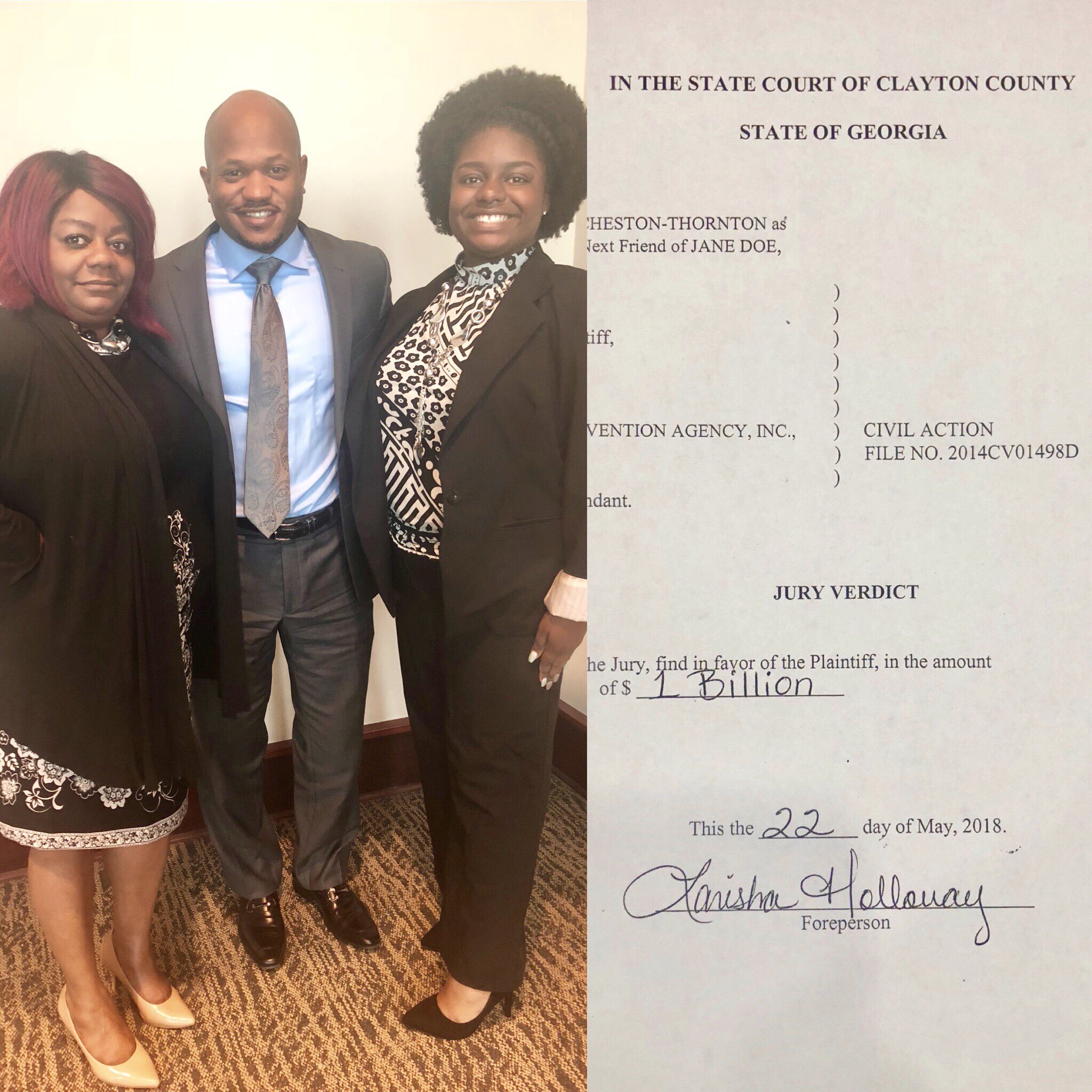NPR has the story of Hope Cheston who was raped by an employee of Crime Prevention Agency Inc.
No shit.
The employee who raped her, Brandon Lamar Zachary, was not qualified to be an armed security guard and did not have proper licensing. Nevertheless, CPA gave him a gun and the job of patrolling Cheston’s apartment building. Then, when Cheston was only 14 years old, Zachary raped her.
He’s now doing 20 years, but when the jury in the civil suit against the company who gave Zachary his gun and his authority found CPA to be negligent, they were then tasked with determining what the experience of that Black girl, now a 20 year old Black woman, was worth.
They didn’t bother with precision. Therapy bills were apparently rounding errors. This is the actual verdict and damages document returned by the jury:

Nothin but beautiful.
Cheston’s lawyer also said, in a phrase I particularly appreciate:
“They said a little black girl in Clayton County who was raped is worth $1 billion. That was a big win for us,” he said.
Just … fuck yeah. Cheston also spoke for herself on the verdict:
“Twelve strangers feel like what I went through and my story and how I feel — after six years — is worth a billion dollars. That is life-changing, history-making, just beautiful news to know,” she said.
If only every victim of injustice could be valued so much.

Is this a joke?
“1 Billion”
The USA is a joke.
No. It’s not a joke.
The jury verdict in a case like this almost always gets reduced on appeal. By law the jury is asked to determine damages, and this largely works well in the case of non-punitive damages (at least “well” if by that you mean the jury’s determination is much more likely to be accepted by the courts).
But with punitive damages, the court is always meddling. They should give clear guidance and stay out of the way, but they don’t. Or they should just change the law so that juries don’t determine damages, but they don’t do that either.
So juries, with all their prejudices, are asked to decide the extremely subjective questions related to what amount of punitive damage is appropriate. Part of PD is to deter future misconduct, both by the entity that lost the suit and by any entity who do similar business or make similar mistakes and who may learn of those damages. Another part is to compensate plaintiffs for injuries that are not easily valued into money.
There is a LONG tradition of giving Black victims a different, lower level of damages than is given to white victims of parallel misconduct.
So essentially, this is the jury refusing to nitpick about the value of a Black girl’s experience and declaring that, since the court is gonna fuck with their punitive damage award no matter what they put down, they’re going to make a statement that no one’s life, no one’s experience is worth more than Cheston’s, more than that of an innocent Black girl. To determine the amount of punitive damages, they probably just decided on the nice round number of $1B for the total, then subtracted the non-punitive damages (medical bills, etc., things that have a clear dollar value) from $1B to get the value of the punitive ones.
It’s a beautiful political statement, both about the disrespect courts show juries and about the value of Black lives, but primarily it’s the latter.
Of course, the USA is a joke, but that’s another matter.
This story made me so happy!
Something I’ve idly speculated is if one is sues for N% of the other party’s income / wealth, and looses — or, perhaps, abandons the lawsuit — then the loosing suer pays the (winning) suee N% of the loosing suer’s income / wealth. To wit, if a company sues a customer (say) for $1m, which is perhaps 1000% (ten times) the customer’s salary of $100k, and the company looses, then the company pays the customer 1000% of their revenues (so, for, say $25m, the “fine” is $250m). The point here is cut down on intimidatory (counter-)lawsuits, by all-but-mandating self-decided “proportional” damages.
There are undoubtedly numerous flaws and I do not claim to have thought this through.